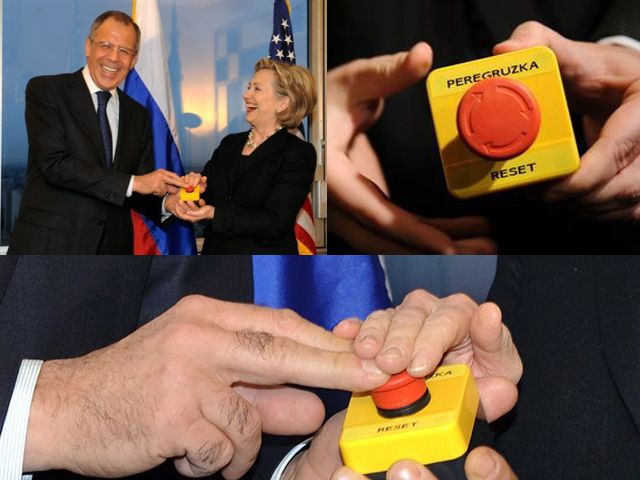
I recently had the opportunity to watch a presentation by the State Department. Making the presentation was an intense, broad-shouldered diplomat. He talked about his recent posting in Pakistan and the department’s attempts to improve America’s image in a country where it’s less popular than Osama bin Laden. He showed pictures of events he’d held, full of smiling Americans and Pakistanis. The pictures were similar to the one above.
I couldn’t help but notice one thing. In all these events the only language that appeared was English. There would be a presentation of awards given by the American government, for instance. On the background there would be a seal of the American government and signs like “furthering our partnership with Pakistan” or “a gift from the United States.” In English.
More below.
I asked the diplomat about this. Surely it would be better to write all this in the language(s) Pakistanis actually use. He stiffened. Well, he responded, Pakistan is a former British colony, so there’s a lot of English-speakers. Sometimes he would go to a local television station and say “Hello, it’s nice to be here” in Sindhi, which is a local language. He didn’t actually know anymore Sindhi than that phrase, but then the local television would be kind enough to subtitle the rest of what he said in English during the interview.
Perhaps using English-only written materials can work if you want to get Pakistanis to love America. Whether or not this is true, it’s also evident that America’s government is really bad at foreign languages. During the Iranian Revolution, for instance, the United States had four CIA officers at its American embassy. Not one spoke Farsi. Then there is the famous “reset” incident with Russia. In 2009 Hillary Clinton presented Russia’s foreign minister with a red button titled “reset.” The aim was to reforge relations with the country after the war with Georgia. Except they used the wrong word: peregruzka (перегрузка) instead of perezagruzka (перезагрузка). Apparently nobody in the State Department knows Russian grammar. Not as if Russia is important or anything.

Which is probably the problem, in fact. I highly doubt that this individual agrees with American policy directed towards Pakistan. He’s probably a ferocious opponent of the drone strikes. Therein lies the problem for the State Department. The truth is that American policies are bad for many countries. The people most familiar with the country aren’t willing to represent American policies. The people willing to defend American policies know nothing about the country.
This is also why the State Department rotates its diplomats every few years. If a diplomat stays too long in a country and becomes too familiar with it, said person might start disagreeing with American policies towards said country. The classic loyalty problem. The State Department avoids the trap by moving its diplomats around. Unfortunately, this ensures that American diplomats never end up with more than a shallow understanding of the country they’re sent to. You end up with diplomats in Pakistan who try to change Pakistani opinion by putting up posters everywhere in English.
It appears, for better or worse, that this is the price that the United States is willing to pay in order to ensure the loyalty of its diplomats. If so, maybe America should invest some time into making sure somebody at the State Department knows the difference between “overcharge” and “reset” in Russian.
–inoljt, http://mypolitikal.com/